She completed her doctor's program in the Graduate School of Science at Nagoya University. She obtained her Ph.D degree (Science) for her research on aurora. Afterward, she worked as a JSPS Research Fellow at the Institute for Space–Earth Environmental Research, Nagoya University. In April 2010, she joined NICT as a fixed-term researcher, and she became a permanent researcher in May 2015. Currently, she is engaged in research and development related to space weather. She works on the development of forecast models for auroras and radiation belts.
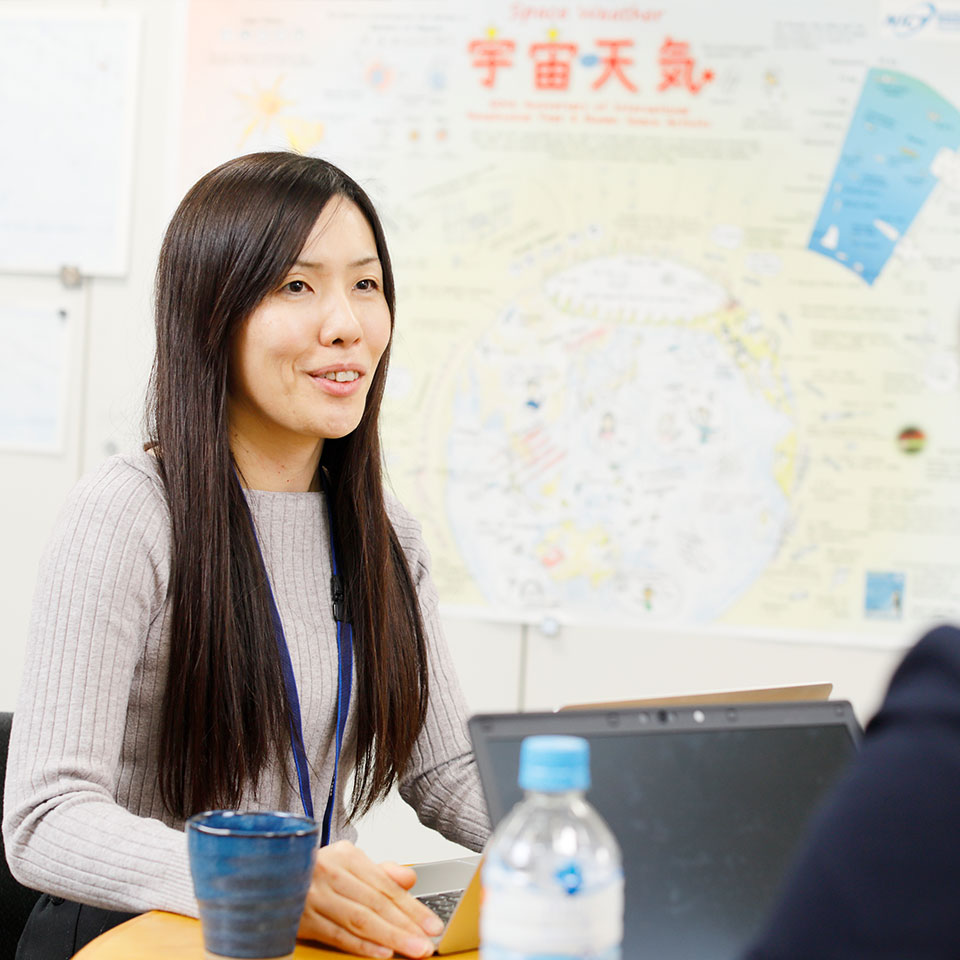
I have always loved looking at stars since I was a child, and at university I studied natural phenomena related to the universe. I obtained a PhD degree in Science for my research on aurora. "I want to return the knowledge I earned to society." When I thought so, the NICT Space Weather Forecast Center was the only place in Japan where this wish could be achieved. At the university I attended, there happened to be a professor who used to work at NICT, and I had an opportunity to participate in his class on space weather. In Japan, many universities and research institutes conduct basic research related to space. However, I learned that NICT is the only institute in Japan that continuously disseminates information relating to space as a business. At first, I was hired as a fixed term researcher, but after about 5 years I became a permanent employee.
In fact, I gave birth to my first child during the period of fixed-term employment. At that time, I struggled between the desire to spend more time on research in order to pursue my research career and the yearning to raise my own child. After much agonizing, I decided to take maternity and childcare leave for as long as about 1 year. After returning to work, it was difficult to conduct research and look for the next job while raising my child. However, I was fortunate. NICT let me continue my research while I was pregnant and raising my child, on the same theme as that on which I had worked before. They also encouraged me to take on a new research challenge. I was also promoted to a permanent position because they highly evaluated the results of my research conducted during that period. Meanwhile, NICT provides an environment where telework can be performed easily. Recently, I have managed to balance work and childcare for my two children by using telework (although I face small problems and difficulties every day).
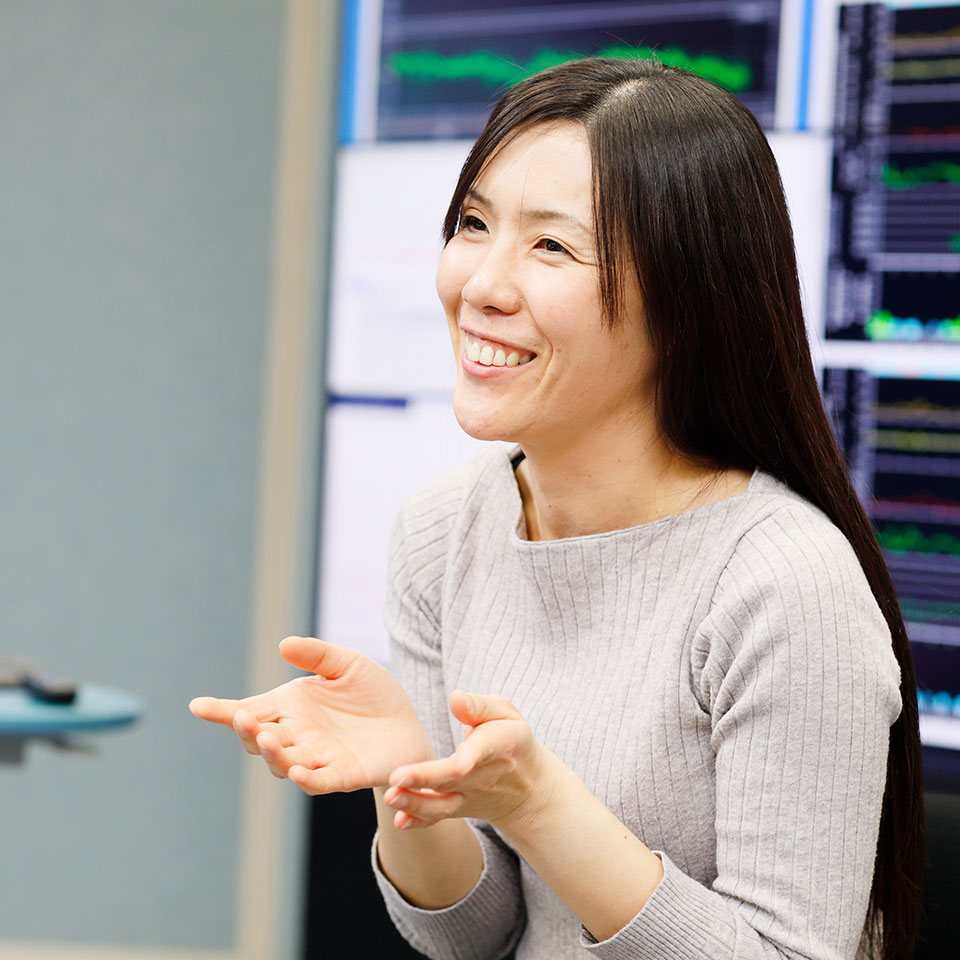
My job is to protect satellites by forecasting changes in the space environment that will cause malfunction of the equipment. Not many people may feel the malfunctioning of satellites as familiar events. In fact, however, our daily lives have already started to closely relate to the universe. The location information displayed on your smartphone is based on the signals from GPS satellites. Also, space travel is becoming a reality. The challenge I am working on right now is to forecast radiation belts and auroral substorms. Although we make full use of various methods, such as observation, simulation, and empirical rules, to forecast space weather, the forecast may be correct in some cases and not in others. I reflect on my forecast every day. When the forecast was correct, we must review why it was correct. When it was not correct, we should know the reason. I believe that using the results of such analyses to improve the research content will ultimately lead to the safe utilization of space in the future. Someday, we will have a society where space weather forecasts are used in the same manner as the weather forecasts for the earth. Before that, we must improve the forecast accuracy. This is a common challenge shared by researchers not only in Japan but all over the world.
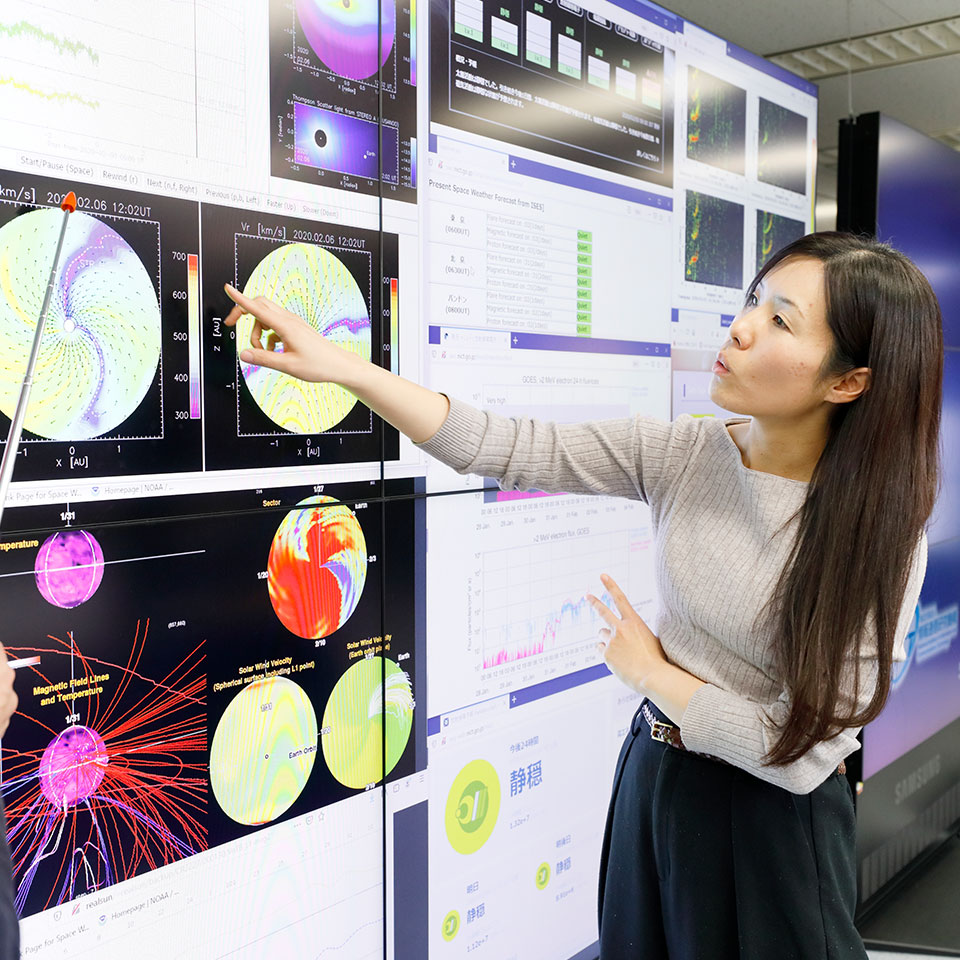
The effort to forecast space weather requires knowledge in various fields, from natural science to information, economy, and communication. NICT provides an open environment with many opportunities especially for young researchers. They let me freely make plans for new projects that I think are important within the framework of space weather. From August to December in 2019, I worked as a visiting researcher at the Los Alamos National Laboratory in the United States, taking my children with me for the assignment. NICT offers us with an environment where such a challenge is allowed or rather encouraged. Basically, any challenge is welcomed. Thus, if you have any good ideas to improve our future society, please come to NICT. We have an environment where you can turn your ideas into reality.
Aurora is one of the most familiar natural phenomena. At graduate school, I obtained a PhD for the research on aurora. NICT has a website titled Aurora Alert that provides forecasts for the occurrence of aurora and the images of the sky in Alaska and Antarctica. Meanwhile, cosmic radiation that moves through space is also our research subject. Although it does not significantly affect us on the ground, it causes radiation exposure of astronauts and damage of satellite equipment. To avoid such damage, we release forecasts on the changes in space radiation.
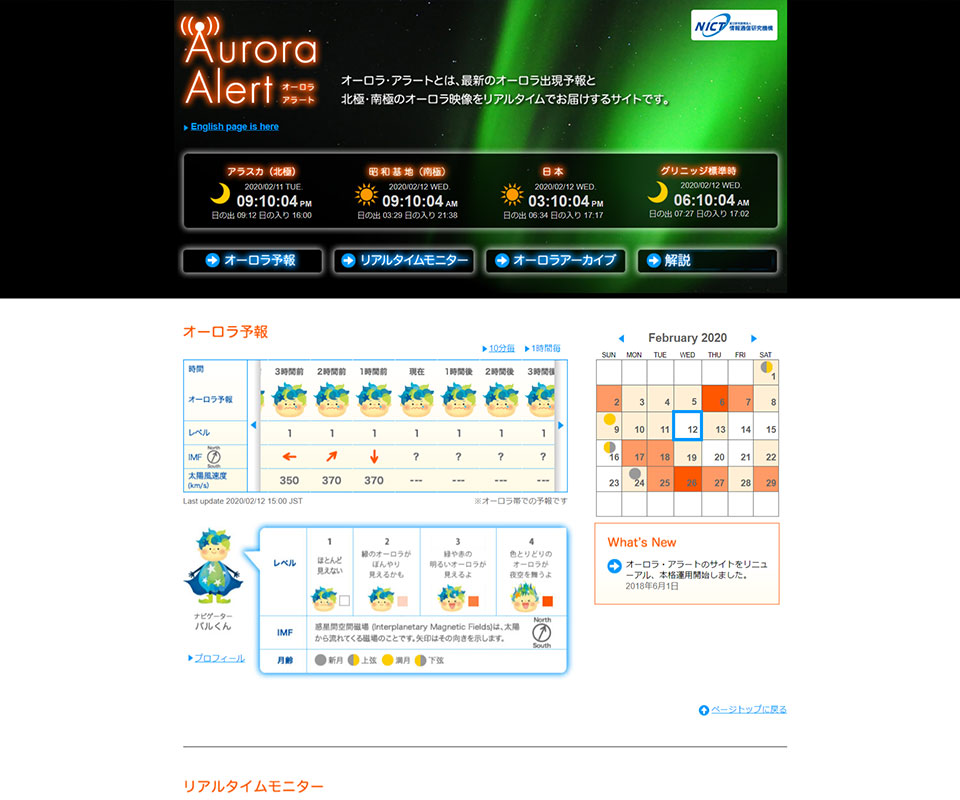

I have two children, so I spend time with them all day during the weekends. Recently, we all have been addicted to the Doraemon movie series. My children seem to be wondering if Doraemon will really be born in 2112.
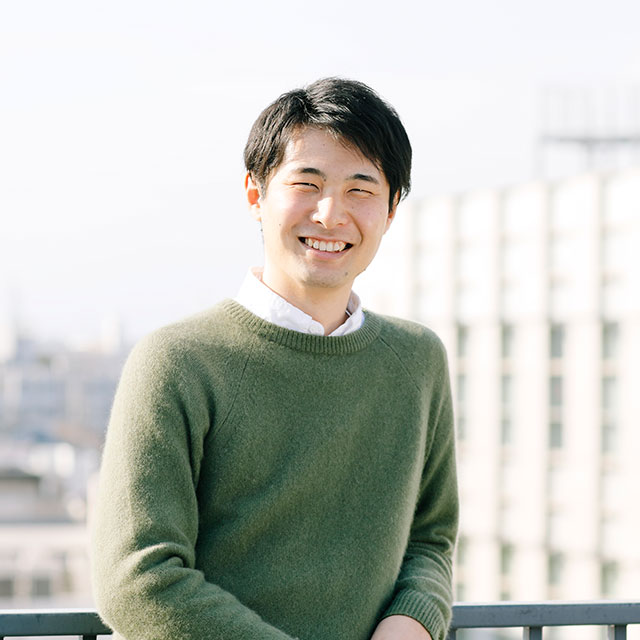
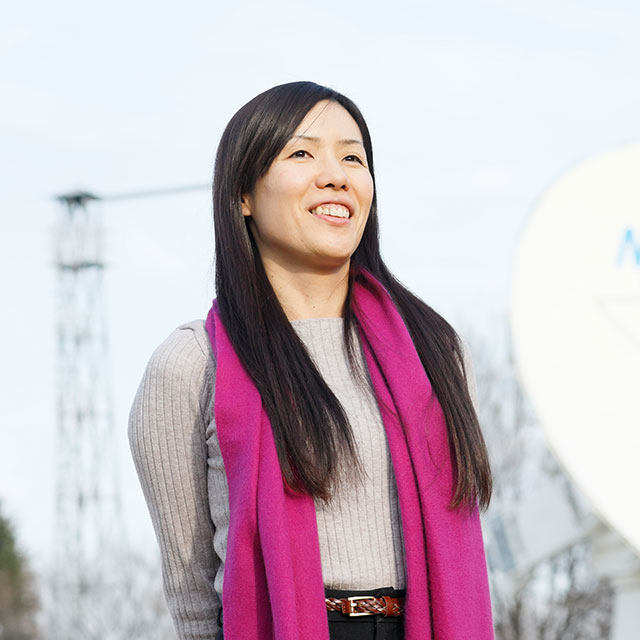
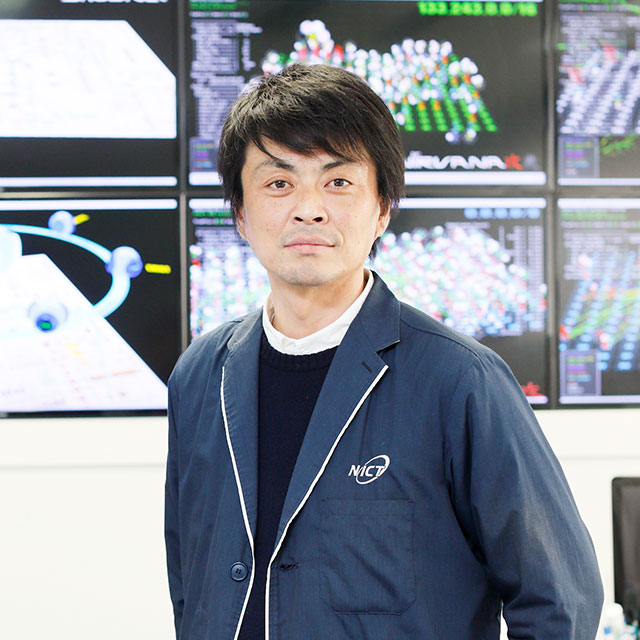
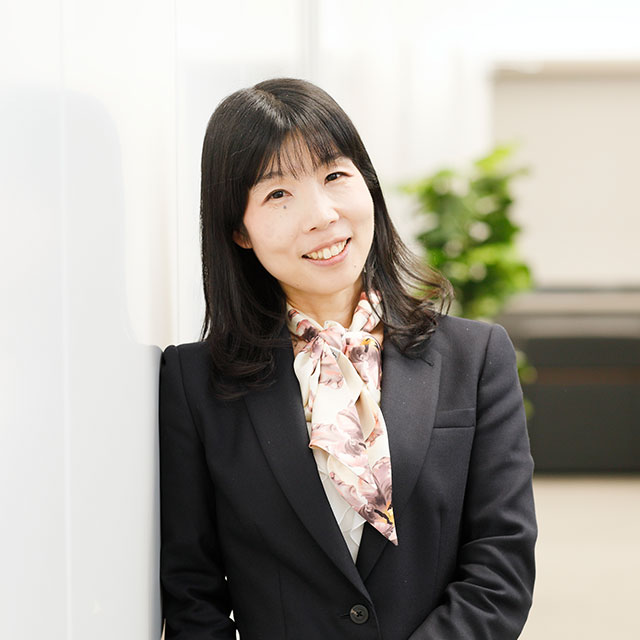
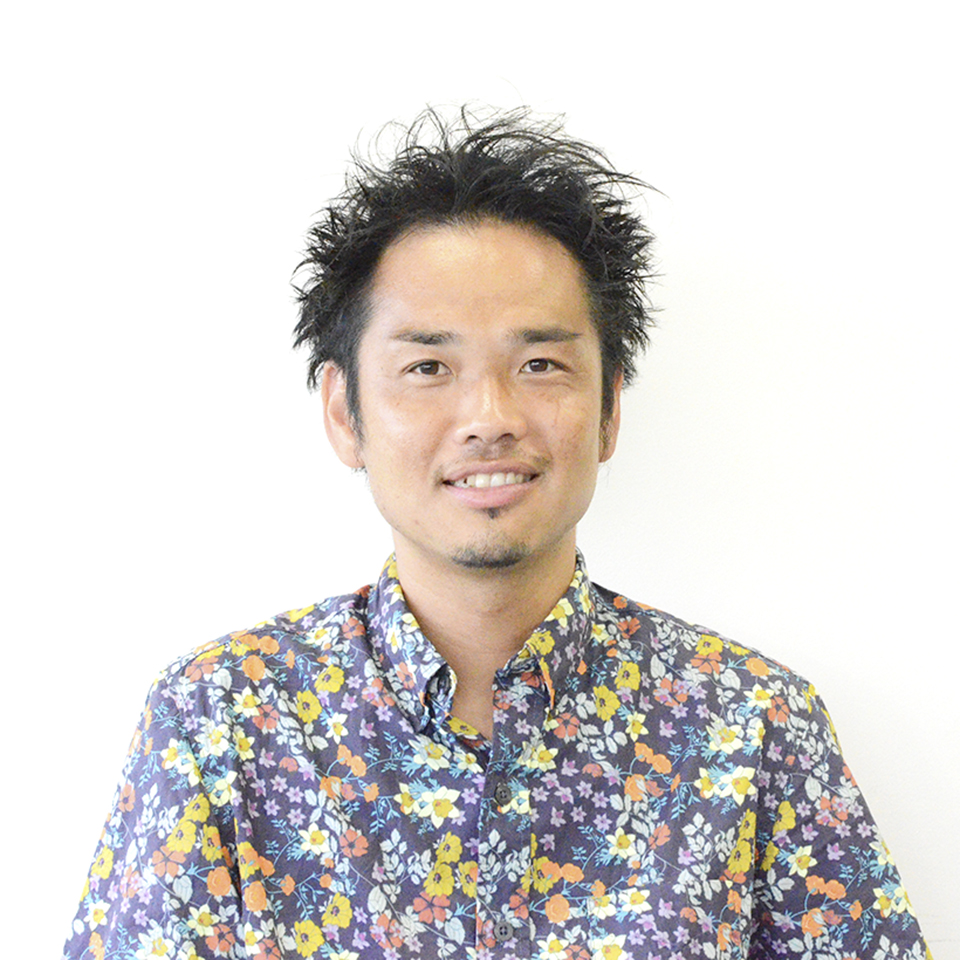
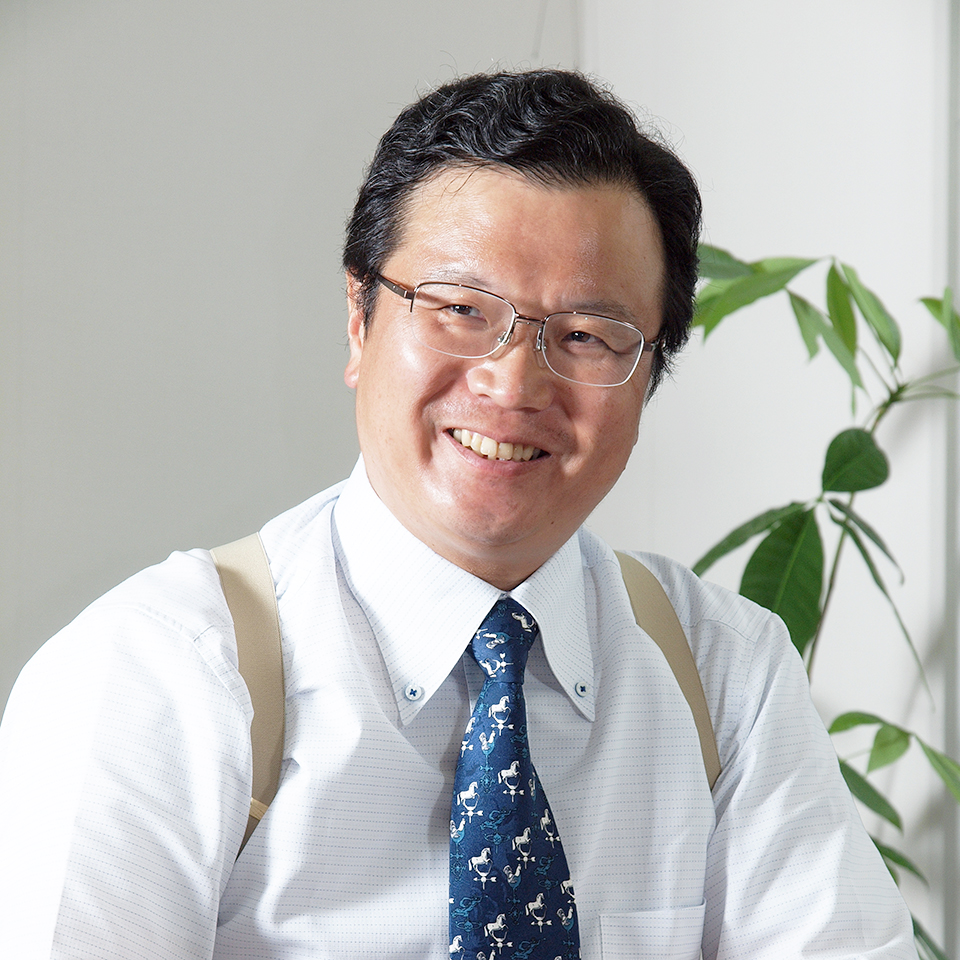
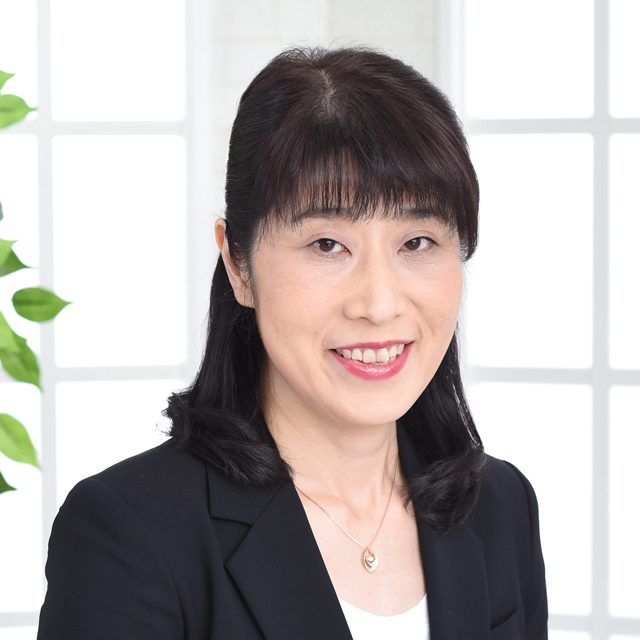
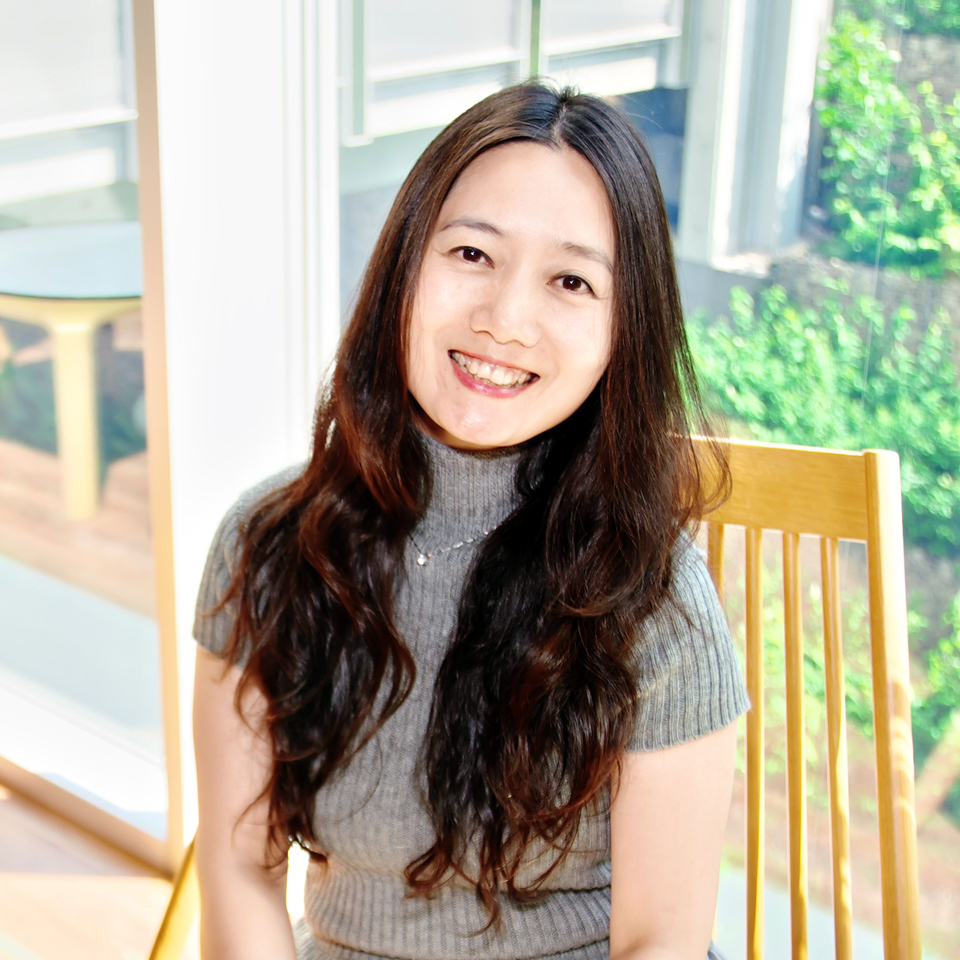
If you have any questions regarding recruitment, please contact us below.